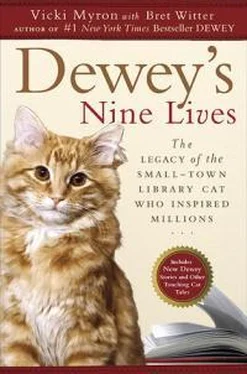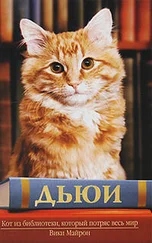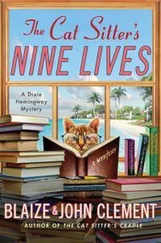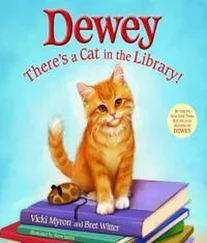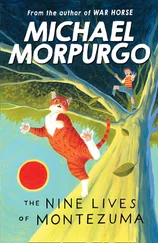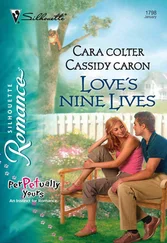I suppose you could say that, after years of work and decades of disappointment, Glenn’s life was full. He had Rusty, his mother, his daughter Jenny, who was already in high school. He had friends and music. He worked an important job with people he loved. On the one night a month when Storm’n Norman’s was open, he did chores: unclogging toilets, tending bar, “feeding the chickens”—a euphemism for sprinkling the dance floor with no-slip wax. After a while, he noticed that a lot of women managed to coax their husbands to Storm’n Norman’s, but couldn’t convince them to dance. So he added another job: one-song dance partner for the frustrated wives of Iowa and Nebraska, the tall good-looking gentleman who swept them away and let them cut loose, at least for a minute or two. Truth be told, though, he barely saw their faces. Dancing was another way to enjoy the music, to help a stranger, and pass the time. He loved dancing—he’d almost forgotten how nice it felt—but for Glenn Albertson the dance hall, despite the bright lights, was nothing more than a sea of gray.
Until one night, sixteen years after his last divorce and ten years after Rusty broke through the scars on his heart, Glenn Albertson saw a face. He was at the bar, mixing drinks, when he looked up and noticed her across the room. She was at a table on the edge of the dance floor, talking with a couple of friends, and it was if a spotlight was shining only on her. It was just a moment, a glancing chance, but it was something Glenn had never experienced before. In the gray sea of his life, this woman seemed to glow. And then their eyes met.
“Take over, Joe,” he told his fellow bartender, “I’m gonna ask that woman to dance.”
He did. She looked up at him, hesitated, then said, “Sure.”
They walked quietly to the dance floor. She was smaller than he expected. The top of her head came only to the middle of his chest, and yet they seemed to fit together as they began to move silently across the floor. She was quiet, focused on something else perhaps, but when she looked into his face, her eyes seemed to take him in, to linger for a chorus, and then, reluctantly, to look away. When he swept her across the dance floor, she didn’t feel like an obstacle. There was no resistance, no weight. There was only the feel of her warm hand, and the memory of her eyes staring into his own.
“I’m Glenn,” he said.
“I’m Vicki,” she replied.
He swept her around the dance floor a few more times, hardly noticing the sea of gray swirling around them. “Do you live around here?”
“In Spencer,” she said.
When the song ended, he slipped his hand behind her waist. If she wanted to leave, he would let her, but she didn’t. She leaned against his arm, allowing him to hold her. Somewhere beyond them, in another world, the drummer beat time, and when the music started again, Glenn led her easily around the dance floor, holding her close as the band played something he never wanted to end.
“I had a good night,” he told Rusty, when he finally got home. “A real good night.”
The big cat looked at him, his eyes hooded and half awake, and meowed for some food.
Part II
I’ve always loved to dance. When I was a kid, Mom and Dad taught us to dance to the rhythms of the old radio in the family room of our farmhouse outside Moneta, Iowa. When I was nineteen and working in a box factory in Mankato, Minnesota, I danced my toes off every night. Dancing introduced me to my first husband, and it helped me through the dark days after my divorce. As a single mother attending college for the first time at the age of thirty, I didn’t have time for so-called “leisure” pursuits, but dancing was never simple leisure to me. Dancing, to me, was essential. When I heard the music, when I got up to dance, I felt like myself—the good self, not the self that had been through six surgeries from a botched hysterectomy and spent almost a decade married to an alcoholic. Even on the darkest nights, after tucking my daughter into bed and scrubbing down the pots and writing that last class paper, I often went into the kitchen, put on a record, and danced all by myself.
I danced all through my years at the Spencer Public Library. After closing, Dewey and I danced in the library, just the two of us, hopping around between the books. At public events, I was known to cut loose with my male friends and my dates. I went to singles dances, too, although never in Spencer. It didn’t seem right, somehow, for the town librarian to be seen cozying up to some man on a dance floor. People, as they say, would talk.
So I went out of town: the famous Roof Garden dance hall twenty miles away in the Iowa Lake Country; my friend Trudy’s favorite spots in Worthington, Minnesota; the more respectable clubs in Sioux City. I dated, but the relationships never worked out. One suitor showed me his divorce certificate on the first night. That should have been a tip-off. The next day, his wife called and threatened my life. Apparently, her husband had the same name as his uncle. The man had shown me the papers from his uncle’s divorce.
The Cowboy, a Sioux City blind date, drove me through the pens where the cows waited for slaughter because he thought they were beautiful in the moonlight. Then he took me to his house and showed me how to make bullets. A man from Minneapolis invited me for a weekend on his sailboat. A sudden storm blew in, and I got so seasick I vomited on my dress. The next morning, he told me his favorite place in the world was some spot in Italy. He asked my favorite place. I was in my thirties, and I’d never been anywhere but Iowa and Minnesota. I knew that relationship wasn’t going to work out, either.
Not that I was focused on having a man. I had fun when they were around, especially the dancing, but I didn’t spend my nights pining for them. I was too busy enjoying what I had: a meaningful job, a loyal family, great friends, and a wonderful library cat named Dewey Readmore Books. Sure, I was basically the person that answered his fan mail, but Dewey never treated me like the help. We were partners. I wasn’t giving up anything by building my life around that partnership, and especially that job. I was gaining a life of contentment and laughter, a life where I didn’t have to scatter my attention or waste my energy on something other well-meaning (and nosy) people told me I was supposed to want. Instead, I got to focus on what was important: supporting my daughter, caring for my parents, establishing deep friendships, and using my talents to build an institution that would provide for the citizens of Spencer. I was extremely happy as a mother and librarian by vocation, and a cat lover and a dancer by habit. I didn’t want to be a girlfriend, too.
Then Dewey died.
My relationship with Dewey can’t be summarized in a few sentences. I know that. And yet, I always come back to these few lines from my first book when I think of him: “Dewey was my cat. I was the person he came to for love. I was the person he came to for comfort. And I went to him for love and comfort, too. He wasn’t a substitute husband or a substitute child. I wasn’t lonely; I had plenty of friends. I wasn’t unfulfilled; I loved my job. I wasn’t looking for someone special. It wasn’t even that I saw him every day. We lived apart. We could spend whole days together and hardly see each other. But even when I didn’t see him, I knew he was there. We had chosen, I realized, to share our lives, not just tomorrow, but forever.”
But nothing lasts forever, no matter how strong your bond. Dewey was my best friend; he was my comfort and companion. He changed the library. He changed our town. And he was gone.
The job wasn’t the same after that. I had been the library director for twenty years. I had dedicated more than two decades of my life to building the organization. Now, suddenly, it didn’t feel like my library anymore. Part of that was my relationship with the library board, which had broken the moment they tried to remove Dewey because he was old. But there was also a coldness, a loneliness, an emptiness that had not existed within those walls for the nineteen years Dewey lived there.
Читать дальше
